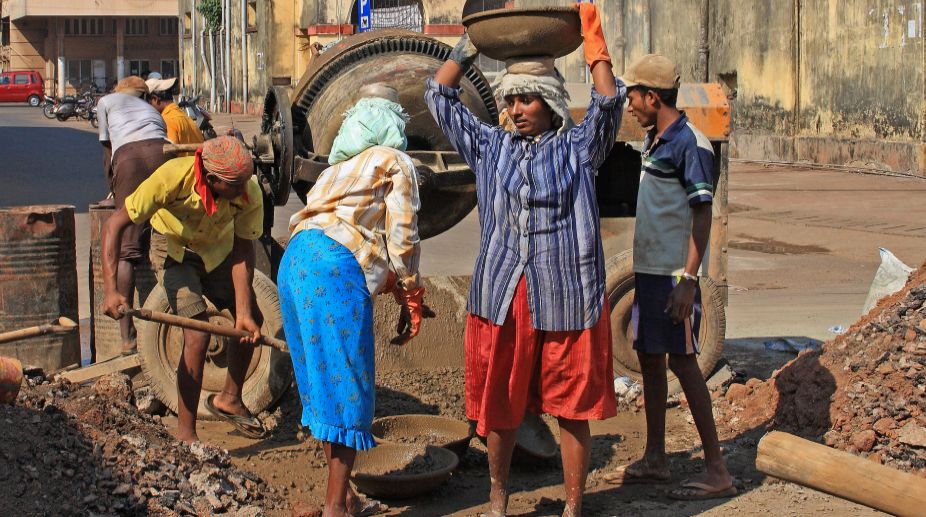Whatever may be claims of the government about success of demonetisation, its regulation about making payments through cheques has come as yet another tool in the hands of contractors to dupe the illiterate and semi-skilled workers hired mainly at construction sites.
Construction sites in Gujarat employ migrant labourers from Uttar Pradesh, Rajasthan and Bihar, who have bank accounts ~ Jan Dhan or regular ~ only at their native places.
Advertisement
The dubious labour contractors take undue advantage of these distant bank accounts by deliberately issuing faulty cheques which get dishonoured on technical grounds which are not as much criminal offence as not having sufficient balance in their banks.
Prosecution for cheque- bouncing is applicable only if there is no balance in the bank account when the money is demanded, but denial of payment for other faults in the cheque like over-writing, signature mismatch, words and numerals about amount not being the same are not prosecutable offences, though justice can be sought through a long-drawn civil legal procedure.
The labourers hired at the construction sites in Gujarat are not paid their dues regularly, but paid only a weekly allowance to sustain their daily needs. The remaining amount is allowed to accumulate till the labour force go back to their natives, often a week before Holi or Diwali.
This bulk amount is paid through a cheque in which a technical fault is deliberately kept so that money is not disbursed by the bank and yet there is no prosecution for the offence of cheque-bounce, pointed out a lawyer activist Ranjeet Kori who had been taking up such cases for last few months.
First, the cheque takes few weeks to get deposited in the bank branches in the native villages and then the cheque return memo takes another 25 days to come back from the employer’s banker in Gujarat, said Mr Kori of the Aajeevika Bureau, the NGO which has stumbled up the newest form of cheating of migrant labour force.
As per the existing laws, points out Mr Kori, it is the responsibility of the recipient to check whether all the entries in the cheque are properly written, a phenomenon that protects the employer from prosecution under the cheque- bounce laws.
After finding and fighting many such cases in courts as well as outside, the Aajeevika Bureau has now started a campaign among semi-literate migrant workers to make them aware about the requisites of a proper, valid cheque.
In the leaflets being distributed in labour colonies, the Aajeevika Bureau mentions the check lists in the cheques like payee’s name, date, amount in words and letters, the signature etc. The leaflets also remind the labourers that the cheques remain valid only for three months and, thus, should be deposited much ahead of their expiry period.









